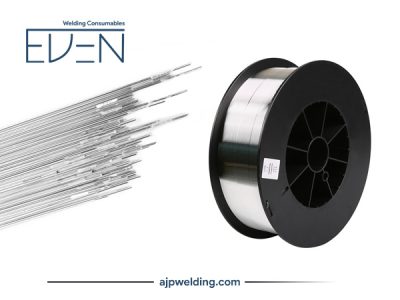E318-16 Stainless Steel Electrode
Rutile type stainless steel electrode for welding stabilized Cr-Ni-Mo austenitic stainless and cast steels. Suitable for using operating temperatures up to 400°C. Especially used for welding of stainless steels acid, salt and alkaline tanks, valves and pipes in chemical, textile, paint and paper industries. Possible to use equally well both with AC and DC. Easy arc striking and re-striking. Fine-droplet metal transfer, good wash-in of joint sides, easily removable slag.
With Grade (AWS A5.4) E318-16, it is being used for different applications such as PS-318 is similar to PS -316, however it contains niobium (Nb) to offer resistance to intergranular carbide precipitation.
EDEN E318-16 is a futile based SS electrode that functions well on DC (+) as well as on AC. The weld metal of 318-16 has a grouping of columbium and molybdenum that offers high temperature tensile and creep strength, enhanced resistance to corrosion, and avoids failure because of intergranular corrosion. Meanwhile, the ferrite number of it is forced between 5 & 7 for to avoid cracking of welds.

Stainless Steel Welding Electrodes with Grade (AWS A5.4) E318-16 are widely used in different applications industry, and can also be customized related to their size and thickness as per clients’ requirements.
APPLICATIONS:
Welding of chemical plant which is exposed to non-oxidizing acid such as sulfuric acid, sulfurous acid, phosphoric acid, etc. Welding of AlSl316 which required to prevent precipitation of chromium carbide in the welding.
DESCRIPTION:
EDEN 318 is a lime-titania type stainless steel electrode which produces perfect austenitic structures. It has excellent usability and weldability.
As the weld metal contains Mo, the deposited metal has excellent corrosion resistibility oxidizing acid and non-oxidizing acid such as sulfuric acid, etc. As the deposited metal also contains Nb, it is excellent resistance to intergranular corrosion and has no precipitation of chromium carbide in the weld metal.
NOTES ON USAGE:
- Keep the arc length as short as possible.
- Choose the welding current within the range stated in the table below.









